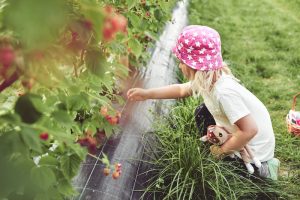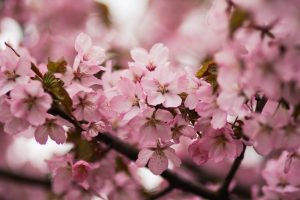Biodynamic Agriculture. Organic farming method.
More and more people are looking for healthy food, respectful of the environment and free of chemical residues. Biodynamic agriculture is a type of agriculture that meets these demands.
Biodynamic foods therefore come from a type of alternative agriculture, characterized by the sole use of natural fertilisers. In addition, to carry out the cultivation work, it is governed by a calendar based on the position of the sun and the moon.
What does biodynamics study? What does the word biodynamic mean?
Biodynamics is the part of physiology that studies the active vital phenomena of organisms.
The adjective “biodynamic” is made up of the Greek words “bios” which means life and “dynamis” which means strength.
What is biodynamic agriculture?
Biodynamic agriculture is a type of agriculture that works with the forces that give life to the earth. Those who practice biodynamic agriculture affirm that through holistic knowledge (consideration of something as a whole) it is possible to determine the best time to sow and harvest crops, thus achieving better quality plants and fruits.
The principles of biodynamic agriculture are based on the philosophy of Rudolf Steiner (1861 – 1925), an Austrian philosopher recognized as the founder of this kind of agriculture. They are based on the use of plant or animal substances under esoteric precepts (beliefs not proven by the scientific community), such as the phases of the moon or the alignment of the planets, to carry out work in the field.
Biodynamic agriculture has many critics, however, its effectiveness generates a lot of interest for what is one of the most studied economic activities. By using only natural agricultural techniques, avoiding the use of chemical substances, the ecological benefits of this kind of agriculture are unquestionable. That is why biodynamic agriculture has an advantage over traditional agriculture.
How is biodynamic agriculture carried out?
Biodynamic agriculture is a type of agriculture that is characterized by using nature’s own resources responsibly, avoiding the use of chemical substances, fertilizers, pesticides and artificial and toxic compounds. However, its main characteristic is based on the relationship between the human being and the earth as a being with its own life.
The earth, plants, animals and man are considered as a whole that must work in harmony. Each of these elements is connected to each other receiving the influence of natural forces, the sun and the moon.
The biodynamic method seeks the predominance of natural vital forces, such as soil fertility or the beneficial properties of many natural products. What is intended to achieve is an agriculture based on diversification, recycling, the exclusion of chemical products and decentralized production.
The main objective of biodynamic agriculture is, therefore, to achieve local production, distribution and sale of food, and to replace the current globalized and industrial production.
Basic principles of biodynamic agriculture
The basic points of biodynamic agriculture are:
- The farm is understood as a self-sufficient organism. Agriculture and livestock are combined to take advantage of all the possibilities that both offer and maintain themselves without the need for external products.
- Using biodynamic formulations, designed to provide “life” to the soil. They are made up of concentrated manure, compost and other substances of vegetable, animal and mineral origin.
- These preparations seek to provide energy to the soil and enrich it through the proliferation of beneficial microorganisms, the application of trace elements and the support of natural enemies against certain pests and diseases.
- Following biodynamic calendars to determine the times of sowing, planting or harvesting. This calendar is governed by astrological rhythms and constellations and with it the most favorable days and times for these tasks are specified.
- Selection of seeds according to different criteria such as: biological capacity, resistance to pests, adaptability to different types of soil and climatological adaptation. Normally, native varieties are chosen.
- Protecting biodiversity, take advantage of natural resources and encourage recycling.
- Practicing crop rotation, apply green fertilizers and practice the association of different herbaceous species.
- Working the land in order to make it more receptive to cosmic energies.
- Promoting crop growth by applying organic fertilizers to the soil.
- Restriction of any use of chemical synthesis products, neither fertilizers nor pesticides.
Why is biodynamic agriculture important?
Biodynamic agriculture has many benefits, such as:
- The use of industrial fertilizers that are harmful to the environment is avoided.
- There are no external interventions. In other words, farms are independent and self-sufficient organisms, capable of producing everything they need to maintain themselves without having to resort to products from abroad.
- Compost is applied to soils granting its multiple benefits.
- Crop rotation is practiced.
- Allowing pest control naturally.
- Providing an ecological balance.
- It favors the quality of the soil and crops.
- It prioritizes the local production, distribution and sale of food over industrial and large-scale production.
What is a seal in biodynamic agriculture?
The mark of biodynamic agricultural products is the Demeter seal, which entails a rigorous and complete verification of the product manufacturing process, guaranteeing correct compliance with its cultivation and production regulations, from cultivation in the field to product packaging. final.
The standard for Demeter biodynamic certification was established in 1928 and is managed worldwide by Demeter International. This seal of quality serves to distinguish products from organic-dynamic agriculture. With it, it is guaranteed that the requirements of the European organic regulations are met (it is usually accompanied by the ‘organic’ seal) and that, in addition, the production and processing standards established by Demeter International are met, such as the use of compost, the prohibition of genetically modified plants, the prohibition of applying additives or chemical substances, etc.
In 1997 the Demeter Association was created, which has more than 3000 operators from more than 40 different countries. Its objectives are:
- The production and commercialization of certified foods
- Ongoing review of Demeter production and processing standards
- Ongoing review of marketing strategies
- Certification in countries that do not have their own system
Differences between biodynamic agriculture and organic farming
The main difference between organic farming and biodynamic farming is that in the former, those nutrients that farmers believe are necessary are incorporated into the soil, while biodynamic farming “creates the conditions in the soil and on the farm so that it is nature decides at each moment and in each place what is necessary”.
Biodynamic agriculture and future
Biodynamic agriculture offers innovative solutions for the future. We can understand it as a conscious, participatory and responsible way of cultivating the soil and regenerating it. The soil, plants, animals, people and the planet complement each other in harmony to produce everything they need to maintain themselves, without the need to resort to products from abroad.
Through Biodynamics, it contributes to enhancing the vitality of ecology and the economy, as well as the social and spiritual aspect of the community that surrounds it and of the planet, as a living being.
Products suitable for use in biodynamic agriculture from Fervalle
At Fervalle we have a biodynamic certificate for Cuvalle, Brotovalle, Missvalle, Algavalle and Algavalle Plus products.
Cuvalle is an organic copper formulation with great power of absorption and translocation towards the interior of the plant. It is recommended at times of beginning and maximum vegetative activity, especially when situations occur that may affect the development of the crop. Among its benefits stands out:
- It manages to be an excellent copper deficiency corrector
- It is a growth stimulator
- It is a self defense activator
For its part, Brotovalle is a formulation with a high content of microelements (copper, manganese and zinc) that has multiple benefits such as:
- It induces the plant to synthesise essential molecules
- It increases the quality and production of crops
- It reduces the effects of unfavorable situations during the life cycle of the plant.
Missvalle is a blend of essential microelements (magnesium, manganese, molybdenum and zinc). Thanks to this fertiliser:
- The absorption of nitrogen and chlorophyll is favored, thanks to molybdenum and magnesium, respectively.
- Phytohormones are synthesized thanks to zinc and manganese.
- The plant gets the nutrients it needs.
- It improves flowering, fruit set and fruit development.
Algavalle is an ecological fertilizer whose formulation is based on a 35% algae extract together with amino acids. Thanks to the application of algae to crops:
- It provides a high content of calcium, micronutrients, vitamins and organic matter.
- The increase in the content of macro and micronutrients in the soil, such as iron, zinc and manganese, is favored.
- They act as a biostimulant, enhancing the physiological processes of the plant (rooting, flowering, fruit set, ripening and fattening of the fruit).
Finally, Algavalle Plus is also a liquid formulation of algae extract with amino acids and enriched with molybdenum. Its advantages include:
- Powerful natural growth regulator
- It provides the nitrogen necessary for the development of the plant.
- Molybdenum is directly involved in the nitrogen absorption process.
- It increases flowering.
- Optimum plant growth.






